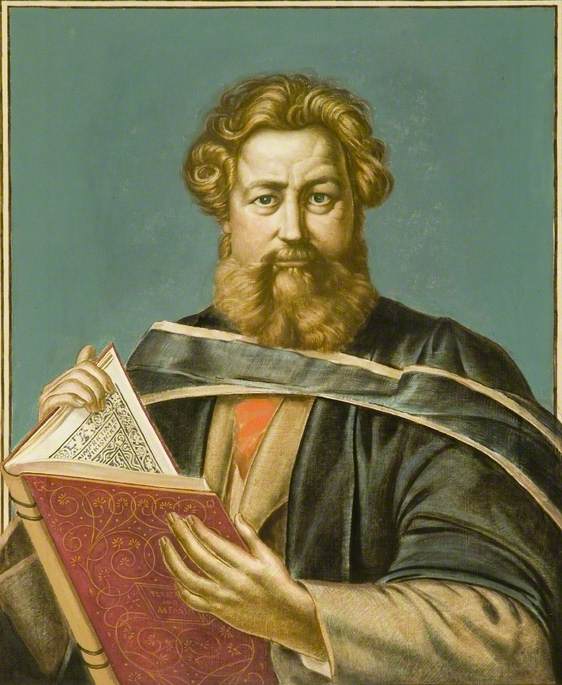Rushbury, William Morris of Walthamstow, Poet and Craftsman, 1938
Let us look backward in history once more for a short while, and then steadily forward till my words are done: I began by saying that part of the common and necessary advice given to Art students was to study antiquity; and no doubt many of you, like me, have done so; have wandered, for instance, through the galleries of the admirable museum of South Kensington, and, like me, have been filled with wonder and gratitude at the beauty which has been born from the brain of man. Now, consider, I pray you, what these wonderful works are, and how they were made; and indeed, it is neither in extravagance nor without due meaning that I use the word 'wonderful' in speaking of them. Well, these things are just the common household goods of those past days, and that is one reason why they are so few and so carefully treasured. They were common things in their own day, used without fear of breaking or spoiling--no rarities then--and yet we have called them "wonderful."
And how were they made? Did a great artist draw the designs for them--a man of cultivation, highly paid, daintily fed, carefully housed, wrapped up in cotton wool, in short, when he was not at work? By no means. Wonderful as these works are, they were made by 'common fellows,' as the phrase goes, in the common course of their daily labour. Such were the men we honour in honouring those works. And their labour--do you think it was irksome to them? Those of you who are artists know very well that it was not; that it could not be. Many a grin of pleasure, I'll be bound--and you will not contradict me--went to the carrying through of those mazes of mysterious beauty, to the invention of those strange beasts and birds and flowers that we ourselves have chuckled over at South Kensington. While they were at work, at least, these men were not unhappy, and I suppose they worked most days, and the most part of the day, as we do.
Or those treasures of architecture that we study so carefully nowadays--what are they? how were they made? There are great minsters among them, indeed, and palaces of kings and lords, but not many; and, noble and awe-inspiring as these may be, they differ only in size from the little grey church that still so often makes the commonplace English landscape beautiful, and the little grey house that still, in some parts of the country at least, makes an English village a thing apart, to be seen and pondered on by all who love romance and beauty. These form the mass of our architectural treasures, the houses that everyday people lived in, the unregarded churches in which they worshipped.
And, once more, who was it that designed and ornamented them? The great architect, carefully kept for the purpose, and guarded from the common troubles of common men? By no means. Sometimes, perhaps, it was the monk, the ploughman's brother; oftenest his other brother, the village carpenter, smith, mason, what not--'a common fellow,' whose common everyday labour fashioned works that are to-day the wonder and despair of many a hard-working 'cultivated' architect. And did he loathe his work? No, it is impossible. I have seen, as we most of us have, work done by such men in some out-of-the-way hamlet--where to-day even few strangers ever come, and whose people seldom go five miles from their own doors; in such places, I say, I have seen work so delicate, so careful, and so inventive, that nothing in its way could go further. And I will assert, without fear of contradiction, that no human ingenuity can produce work such as this without pleasure being a third party to the brain that conceived and the hand that fashioned it. Nor are such works rare. The throne of the great Plantagenet, or the great Valois, was no more daintily carved than the seat of the village mass-john, or the chest of the yeoman's good-wife.
So, you see, there was much going on to make life endurable in those times. Not every day, you may be sure, was a day of slaughter and tumult, though the histories read almost as if it were so; but every day the hammer chinked on the anvil, and the chisel played about the oak beam, and never without some beauty and invention being born of it, and consequently some human happiness.
William Morris












































































































































































No comments:
Post a Comment